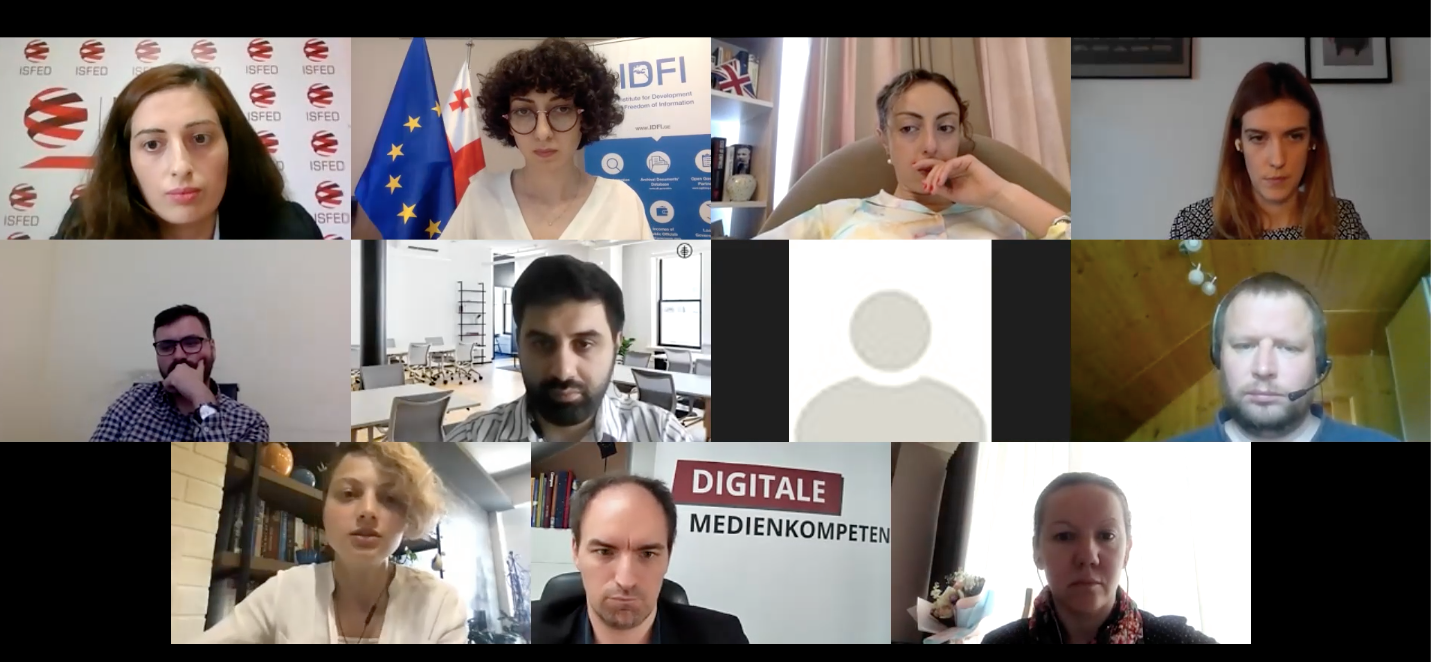


With the aim to widen and strengthen IDFI’s research scope and areas in disinformation research domain, sync our research focus and topics with the other experienced organizations from Central and Eastern Europe, IDFI’s disinformation and memory studies direction organized a roundtable discussion on June 1, 2021. The leading think-tanks and media organizations with a long tradition and divergent areas of specialty in reporting on and tackling disinformation were invited to discuss the state-of-the-art in disinformation studies and their organizational strategies in debunking the socio-political effects of disinformation in their national context.
The conference was opened by the head of the Memory and Disinformation Studies Direction - Anton Vacharadze and Associate Researcher of the same direction- Nino Gozalishvili. They emphasized on the enduring and complex challenges that disinformation has been posing on democratic and democratizing societies like Georgia.

The first panel of the conference was opened by Megi Kartsivadze, Analyst of Archives, Soviet & Memory Studies Direction, who presented IDFI’s work in the domain of disinformation research and debunk. The presentation put an emphases on the multidimensional effects that disinformation has on different fields of history, society and politics.
Together with IDFI, the representatives of the following eight different organizations and media outlets took part in the discussion: GLOBSEC- Dominika Hajdu; International Society for Fair Elections and Democracy (ISFED)- Nino Rizhamadze; NATO Strategic Communicatons Centre of Excellence - Elina Lange-Ionatamishvili; ZINC Network - Sopo Gelava; People in Need Georgia – Giorgi Jangiani; Transitions, Prague - Jaroslav Valuch; Center for Digital Media Literacy Vienna - Dietmar Pichler; DELFI - Vitold Jančis;
Representatives of the different think-tanks and media outlets presented their work in disinformation research and the main strategies that they have developed for fighting disinformation. Moreover, each panelist presented not only the success but also the challenges they face in regards with disinformation studies and the avenues further that need to be developed. The lack of enough and effective monitoring tools for small languages like Georgian or Slovak were highlighted together with the level of public trust in CSOs among the obstacles that this field of action creates.
The dialogue was finalized in a roundtable where the participants and attendees had a chance to draw the parallels and observe the cross national similarities in the trends of disinformation narratives in the region. The dialogue aimed at enabling further discussions and planning of the research adjusted to the national context yet with regional importance.
___

The conference was held with the financial support of the International Coalition of Sites of Conscience and the Swedish International Development Cooperation Agency, Sida.